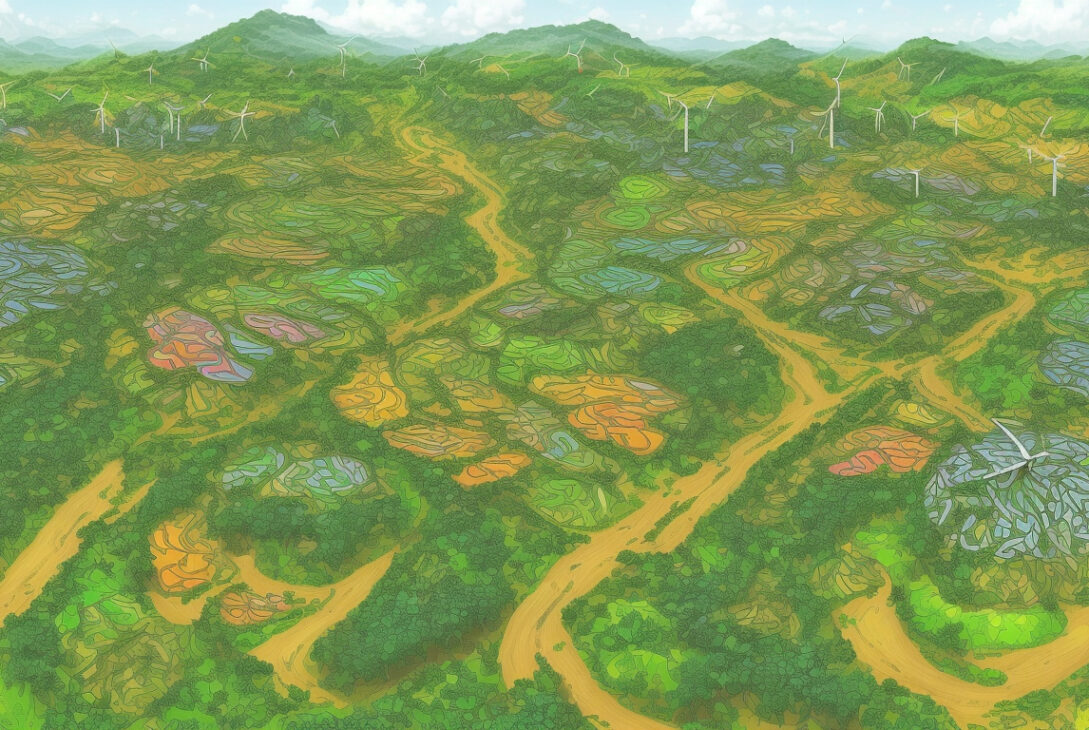Africa Harnesses Technology to Leapfrog Towards Green Growth
July 23, 2025 – World Economic Forum
Digital communication and innovative technologies are rapidly transforming Africa’s economic landscape, offering the continent a historic opportunity to leapfrog outdated legacy systems and establish itself as a leader in the global value chains of the future. As the world faces economic uncertainty and geopolitical fragmentation, Africa is embracing the intelligent age through strategic investments in technology, infrastructure, skills, and governance reforms aimed at sustainable and inclusive growth.
Digital Transformation Accelerates Economic Inclusion
In 2024, Africa’s digital payment networks celebrated a remarkable milestone: over 1.1 billion mobile users conducted transactions totaling more than $1.1 trillion, integrating millions into the global economy. This acceleration in digital financial inclusion is part of a broader digital transformation that is outpacing global standards. For example, Kenya’s M-Pesa mobile payment platform serves upwards of 40 million users and continues expanding its regional reach. Similarly, Ghana and Nigeria are utilizing digital IDs and artificial intelligence platforms to enhance agricultural productivity and improve food security across their populations.
Mobile connectivity is expected to grow substantially in the coming years, with projections estimating 751 million unique mobile subscribers in Sub-Saharan Africa by 2030. However, internet penetration remains a challenge, averaging only 27% in the region compared to a global average of 67%, signifying the need for accelerated digital inclusion efforts, particularly in underserved countries.
Green Transformation and Sustainable Innovation
Africa’s green growth initiatives complement its digital transformation, with countries like Morocco and Rwanda leading the way in renewable energy projects. The Noor Solar Complex in Morocco and Rwanda’s eco-industrial parks showcase models of sustainable, low-carbon supply chains. Ethiopia is pioneering these efforts through its commitment to eco-industrial parks, while Rwanda’s Zipline drone service delivers medical supplies to remote clinics, drastically reducing delivery times and minimizing blood wastage by two-thirds.
Yet, despite these successes, challenges remain. The continent faces significant energy constraints, with heavy investments still directed towards fossil fuels. Africa requires an estimated $200 billion annually to meet its climate goals, but grid inefficiencies, limited access to electricity, and scarce investment-grade credit continue to hamper progress in scaling clean energy solutions.
Unlocking Africa’s Demographic and Resource Potential
Africa is home to 18% of the world’s population, with a notably young median age of 19. Nigeria alone accounts for 2.8% of the global population, representing vast untapped demographic potential. The continent also holds abundant reserves of key minerals—such as cobalt, lithium, graphite, and rare earth elements—that are vital for powering digital and green industries worldwide.
For Africa to realize its ambitions as a leading hub for digital and green technologies, investments in cloud infrastructure, resilient and sustainable energy systems, and regulatory modernization are critical. These foundational elements will support the scaling of industries reliant on AI, big data, and advanced manufacturing.
Addressing Persistent Gaps: Connectivity, Trade, and Governance
The continent’s digital and green evolution is impeded by several structural challenges. Internet penetration varies widely; countries like Kenya and South Africa boast comparatively higher digital adoption, whereas others like Chad and Niger lag significantly behind. Additionally, Africa’s logistics and trade performance is below OECD standards, with border delays and inefficiencies inflating export costs and undermining competitiveness.
Governance and institutional capacity differ greatly across the region. While nations such as Mauritius, Rwanda, and Kenya exhibit stable, investment-friendly environments, others face challenges that restrict effective integration into regional and global value chains.
Catalyzing Progress Through Trade and Regional Cooperation
The African Continental Free Trade Area (AfCFTA) and its forthcoming Digital Trade Protocol are pivotal to accelerating Africa’s digital economy. Full implementation has the potential to lift 30 million people out of extreme poverty and increase continental income by $450 billion by 2035. Significant investments in broadband, cloud computing, and digital infrastructure are underway, supported by public-private partnerships expanding subsea cables, fiber networks, and data centers. Initiatives like 2Africa and Equiano are enhancing broadband capabilities and enabling next-generation 5G networks. Pan-African efforts, including the Smart Africa Alliance and the African Union’s Data Policy Framework, aim to harmonize digital regulations and foster seamless cross-border data flows, driving integration into global digital markets.
Strategic Priorities for Inclusive and Resilient Growth
To sustain its upward trajectory, Africa’s strategy focuses on four key pillars:
-
Digital Infrastructure and Skills: Investing in broadband and cloud infrastructure, and training 500,000 ICT professionals by 2030 with strong gender parity commitments.
-
Green Investment: Scaling renewable energy deployment through blended finance and public-private partnerships, particularly in underdeveloped regions.
-
Regulatory Modernization: Harmonizing digital trade frameworks, implementing interoperable digital IDs, and employing trade facilitation tools to lower costs and empower small and medium-sized enterprises (SMEs).
-
Resilient Value Chains: Leveraging trade and logistics data to enhance local content, integrate SMEs, and expand interoperable payment systems, drawing lessons from Asian and Latin American models.
A Global Blueprint for Transformative Growth
Africa’s young population and immense resource wealth present boundless opportunities for rapid and sustained growth, contrasting with regions facing demographic headwinds and sluggish expansion. Success stories from Mauritius, Rwanda, and Kenya illustrate how visionary leadership and targeted investment can unlock Africa’s latent potential, making it a beacon of inclusive prosperity.
As digital trade, innovation, and sustainable logistics reshape global supply chains, the onus is on governments, investors, and businesses worldwide to collaborate closely with African pioneers. Through ambitious innovation, world-class infrastructure, and inclusive policies, Africa’s leapfrog into the digital and green era can become a global blueprint for resilient and sustainable economic development.
The time is now for global leaders to invest boldly, partner deeply, and innovate alongside Africa’s dynamic workforce and trailblazing innovators to power the future global economy.
This article reflects the views of Anthony Cano Moncada, Graduate Researcher at American University School of International Service, and was published by the World Economic Forum under the Creative Commons Attribution-NonCommercial-NoDerivatives 4.0 International Public License.










